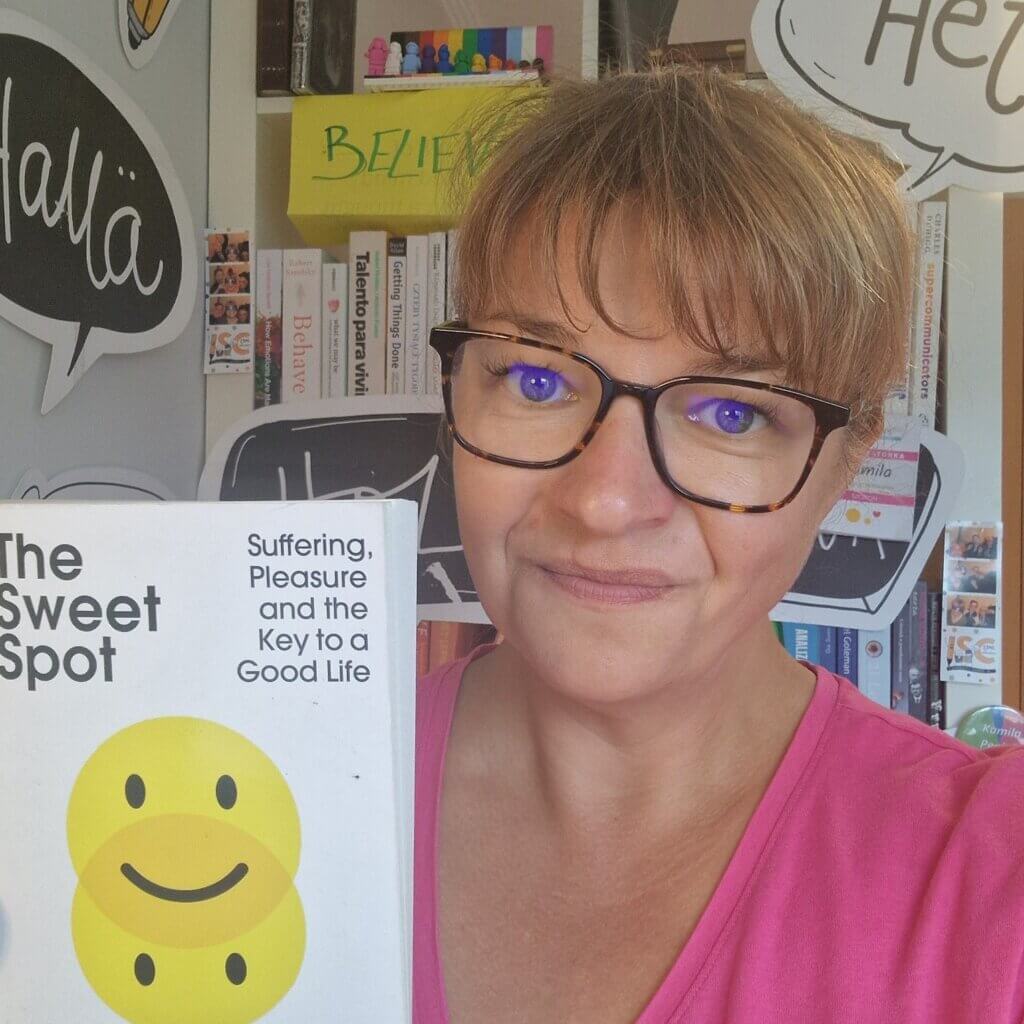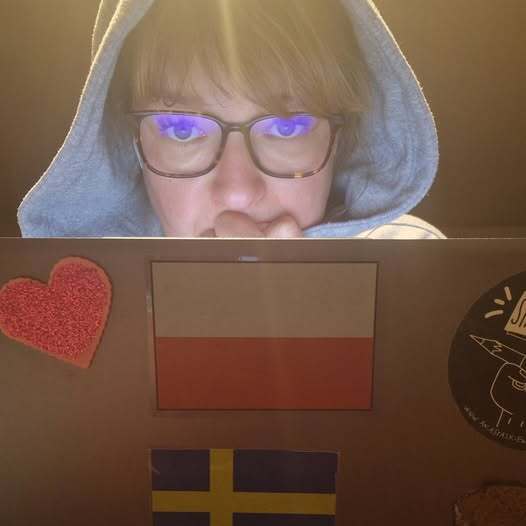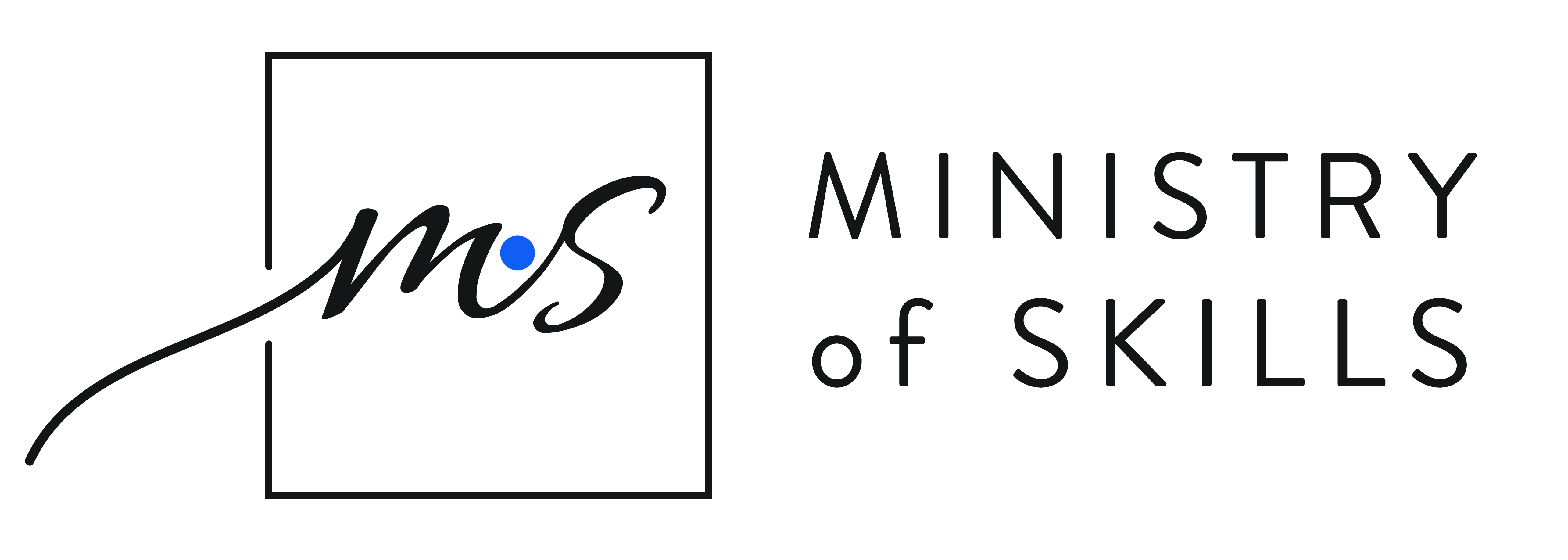The shadow

Home Blog BLOG The shadow “Kamila, I need you to help me look at the situation from last week differently. The situation really got me boiling…” A sentence that came right after “good morning” in one of my recent sessions. A sentence I hear quite often. A sentence that carries openness to changing perspective — not the situation itself, because that has already happened. It’s not about finding who’s to blame or collecting evidence against someone else. It’s a sentence that contains a desire to learn how to respond instead of react, to understand instead of ignore. A sentence that’s usually followed by a story about what happened — and the coaching session becomes a pit stop, a space for wise retrospection, so that in future, similar situations, the person can respond more optimally, more wisely, more maturely. Especially when in a leadership role. “Think like a scientist.” — I love this concept, which I first came across through Adam Grant. And it was exactly this concept that came riding in on a white horse (wearing a lab coat!) to help look at the situation differently — through a microscope, a kaleidoscope, and from a helicopter view. My favorite questions for shifting perspective: What arguments support the idea that the other person is right? (Not if there are any, not maybe, but assuming they definitely are — at least in their own mind.) It’s not an easy question — it can sting, because it might turn out that we, not “those others,” actually started the situation. It’s a look into our shadow. What is this situation teaching me, warning me about, informing me of? If we looked at it not as something done to me, but as an external event, an observable phenomenon — just facts, viewed calmly — what is really there? (From Joanna Chmura) — “And maybe it’s even for the better?” I love this question-sentence 🙂 When emotions run high, it’s hard to hear it, but once they settle, it often turns out that even from an unpleasant situation, benefits can emerge — and that’s not just painting the grass green or chasing a “silver lining.” It’s real. That particular session — the one that inspired me to write this post — ended with an incredibly interesting use of an unpleasant situation to the benefit of the Coachee, her team, and even the organization. Because within that situation (and the organization itself) lay surprising and powerful potential. Most sessions usually end with: +5 points to mental resilience, calmer responses to future challenges, a bit of teflon against irritation (quote), less psychological game-playing, and — most importantly — deeper breathing, both at the end of the session and in facing the next challenges. Because the world isn’t one-dimensional. Because it’s worth learning to look differently, to notice more broadly. Because it’s not always about us (in fact, the world rarely revolves around us, I’d say). Because everyone has a bad day or a tough moment, and it’s good to gain perspective and distance. Talking things through with someone who can invite us to places we haven’t yet been mentally really helps. So does a good night’s sleep and physical activity — to recharge the circuits. It’s absolutely worth looking in a less obvious way. Thinking like a scientist pays off. And you — when was the last time you thought like a scientist? What are your tried and tested ways to zoom out, look at your shadow, and see things calmly — from another side? published 2025-10-29 Are you interested in collaboration? Contact.
Inspired by Vincent

Home Blog BLOG Inspired by Vincent At the age of 27, he decided to become an artist – a sentence that might sound arrogant, perhaps lacking humility, maybe even audacious. And what if I told you that three years later, this same man was teaching painting? That in a single decade he painted over 900 works and created more than 1,100 sketches – that’s one to two pieces a day, even while battling for his health.That he learned by copying.That he wrote many letters to his brother, often including his sketches.That the main advocate and curator of his art was his sister-in-law Jo – but hardly anyone has heard of her. And that during his lifetime, very few people had heard of him either, as he only managed to sell one single painting – for 400 francs (about $2,000 today). That you know his works, even if, like me, you’re closer to being an art ignoramus than a connoisseur.That today, they are among the most expensive in the world (lots of zeros in those dollar amounts) – just to give you an idea, I’ll show you the equivalent in gold bars for the sale of that only painting and for the next one. And I kind of knew all this, I was aware that none of us lives forever, and that one day there might no longer be time to do the things we love, to give in to our passions, to nurture our talents, to follow the song of our own canary.That “one day” is a highly task-oriented place.That the right time is now, that it’s worth sketching, creating, deciding, and staying disciplined. I kind of knew it – but this particular Van Gogh experience, maybe because it was interactive, maybe because I was in the company of people with whom I could discuss my reflections, or maybe because the time was just right… I don’t know – but I do know that it taught me a lot… – Models for painting were expensive, so he didn’t use poverty as an excuse not to paint. Wanting to experiment with colors, he created 35 self-portraits, which we now know so well, all while mastering his coloring technique – if there is will, there is a way.– He struggled with himself and, at his own request, asked to be placed in isolation – and it was there that he painted, among others, The Starry Night – sometimes difficult moments can become the canvas for something beautiful.– In his turbulent academic journey, he was criticized for his chaotic approach to work and overly free technique, and eventually “pushed out” because of differences of opinion – sometimes doing things your own way, staying true to yourself, though not easy, is the only right path to follow the song of your canary… I won’t create paintings, but there is a piece of creation that is mine, and since my last Van Gogh experience, I have decided to become the Van Gogh of my own life even more – listening to my canary’s song… At the age of 46, I decided:– to apply colors to the canvas of my days even more boldly – though not without fears and doubts – with even greater sweep, perhaps in my own technique that the academic world has yet to study,– to look for ways, not excuses – because while life’s journey can be unpredictable, it’s really worth searching, asking for help, arming oneself with patience, but not giving up,– to copy those who inspire me,– to certainly write a lot and to speak to/with wonderful people. To experience insights and inspiration fueled by conversations. And you – what has recently made you stop and decide boldly, perhaps even wildly, about your own one and only life, the one that won’t have a repeat? Van Gogh left this world at the age of 37, leaving behind not only works that move us, but also stories and experiences that teach, inspire, and invite us. Let’s learn to wisely stand on the shoulders of the giants who came before us, so that we too can leave something good for those who come after. https://youtube.com/shorts/Ls_cRpU0Lrk Opublikowano 2025-08-10 Are you interested in collaboration? Contact.
Rollercoaster

Home Blog BLOG Rollercoaster “Even 80% of Leaders had no chance, opportunity, or possibility to prepare for a managerial role.” When I heard this sentence while listening to a quite interesting podcast during my morning run – I stopped! I rewound the conversation because I hoped I had misheard! I highly recommend the entire conversation on #EatWorkSleepRepeat with Isabel Berwick, as she talks interestingly about a systemic approach to a 4-day work week and hybrid work. I also recommend her podcast series #workit But what about the fact that still? We are still constantly dealing with promotions from the series – “You’re a good expert, so now lead other experts?”!?!?!?! I really live in a bubble that gives me hope that things are completely different. That we no longer make experts jump headfirst into leadership, hoping that if they don’t break their spine (or someone else’s), it will be okay! My bubble from the last week consists of 3 new coaching processes, where: The supervisor of the person who is to be promoted invites her to coaching work to ensure a proper start, to prepare for contracting collaboration with a new team, with other leaders, with herself. During the contract with her, she tells her – “Now I want you to learn to look through the window to devise strategy” After a year of work in the Senior Manager position, the main boss, HR manager, and the person in question did a retrospective together and developed a program designed to support the Senior Manager so she could more boldly use her potential. She wants to and is at the starting blocks to upgrade her skills. The organization is developing mega fast, she knows she needs it too, and in partnership. HR, for an experienced and trained Financial Director, in the face of industry recession, because it might be difficult for her, proposes a coaching process. Just like that, to support her in potential but not at all certain turbulences. Preventively. In the coming week, more beginnings of more programs. I’m curious about what areas we’ll work on, but something tells me that the supervisors and HR who report their colleagues are among the 20% of those who actually know that it’s worthwhile and possible to wisely and sensibly support future and current Leaders through training and coaching. So they don’t burn out, so they take care of themselves and their team. So they don’t reinvent the wheel by performing surgery on a living organism without having the proper tools. So they don’t jump headfirst into leadership and break their neck. And we need to jump into the unknown so much these days, so if you can scout the ground and prepare for the jump, it’s definitely worth it and really pays off to do it in professional company. Link to the conversation that stopped me, let me know if something in this conversation stopped you – https://open.spotify.com/episode/0PxaXeta8RP1csJtrg0ixQ… Have a good Monday in excellent company that will support us in wise jumping, wherever we decide to jump today. PHOTO by @StudioKamienica, where jumps and other crazy ideas of photographed subjects are realized while maintaining safety published 2025-03-06 Are you interested in collaboration? Contact.
Different in different languages

Home Blog BLOG Different in different languages “- When speaking English, I lose intelligence…” “- I finally like myself in English, my mother tongue, so I prefer not to speak Spanish with you…” “- No puedo expresarme en otros idiomas como en español…” Each of these sentences that I recently heard stopped me in my tracks. The limits of our world are the limits of our language – as Wittgenstein used to say, and I’ve been turning these words over for years. How is it that we intuitively feel we can be different people when speaking in our second, third, or fourth language? Sometimes better ones. 🤔 Did you know that your attitude during language learning affects how freely you as a person will feel using it in the future? In my work, I often intentionally invite clients to discuss difficult topics in their second language. This allows for distance that really helps. In a moment, I’ll invite another group of students to a conversation about emotion management and emotional intelligence. It’s surprising how operating in different languages can help us take control of the steering wheel in the car of our life when emotions are in the passenger role. One of my clients once said: “My past shit took place in Portuguese, so when speaking English, I am only present and future me.” Whatever makes you happy? 🤓 Taking this opportunity – huge applause for those who live in multilingual relationships, organizations, families, as well as those living outside their country of birth. Take care of yourselves in every linguistic version and let one support the other. For me, you’re living several lives in one – and that’s beautiful. ☺️ How do I feel in different languages? In Polish – I am most reflective and analytical, often reaching deep, searching for meanings. In English – I feel dynamic, open, and action-oriented; it’s the language in which I conduct workshops and speaking comes to me with the greatest ease[4]. In Spanish – I am more emotional and spontaneous, I love how this language gives me the ability to express feelings in a way that doesn’t come as naturally in other languages. In French – I feel like a child learning about the world anew; sometimes uncertain, but grateful for every opportunity to learn. Passe une bonne journée – in French I’m still learning not to take corrections personally, my Spanish version throws in words, English is ready to help, and Polish reminds me to simply enjoy all of this. Maybe this will motivate those who are taking on learning another language in adulthood? 🤓 published 2025-03-06 Are you interested in collaboration? Contact.
Diving into the leader’s head

Home Blog BLOG Diving into the leader’s head …I wish someone would have told me that this life is ours to choose No one’s handing you the keys or a book with all the rules The little that I know I’ll tell to you… Do you have it that lyrics from certain songs become your guiding theme, kind of like a soundtrack to moments in your life? P!nk’s work has been with me for many years. I love to scream, jump, cry, and dance to it. And lately, it gets me in a positive mood before a huge challenge I’ve set for myself. Before I cross the threshold of a certain room in the center of a certain city every Monday evening, for courage I play “All I know so far” among others and try to remember that none of us has the key to life, there’s no book with rules, that each of us is improvising in this life. What if you can professionalize yourself in improvising? What if there are ways to feel relatively comfortable with mistakes, with failures, with weak ideas? If it’s possible, then I want to at least try, even though it’s completely uncomfortable. And I try, I fall down, I fail, I don’t know what to say or how to react, I lack brilliant ideas, because surely those are the only ones I should have (right?). And I keep trying. And my instructor teaches me that it’s okay. And even though my head knows, and there’s even research and great books on it (I’ll drop my two favorite titles in the comments), that we learn through mistakes and quite effectively at that, surely at a certain age it’s not appropriate, right? Or maybe it is appropriate? Maybe you can make it fun and really have a good time with it? You can, with a professional improv teacher (I definitely recommend Mylaga Improv Classes and Alfonso Garzas) with people from such different planets that it’s hard to compare yourself to each other (and that’s great). You can, and it’s even worth it. Because we improvise in life, because no one has mastered the key to life and there’s no manual on how to live well. Because you can learn to improvise and it’s worth it. I’ve been recommending improvisation workshops especially to Leaders for years, because in leadership I don’t think we should count on any kind of patent formula. Business is improvisation that’s worth being prepared for. I’ve been running a company for 20 years, I’ve been watching Leaders, companies and teams from the front row for 20 years – the ability to improvise is, in my opinion, a must-have in your toolkit if you want to actively participate in business. And since I fundamentally don’t recommend something I haven’t tested on myself, I’ll continue to fall down in my improvisation classes, wander, stumble… and maybe the day will finally come when it will be relatively comfortable. Because it still hurts, especially bruised is that part of me that is firmly convinced in the world that I know how to talk. …So you might give yourself away, yeah And pay full price for each mistake… And how do you learn about life, business, being a Leader? What helps you get comfortable with mistakes and failures? published 2025-03-06 Are you interested in collaboration? Contact.
Expanded perspective

Home Blog BLOG Expanded perspective How often do you think about what you CAN’T see? When we see others’ successes, are we able to notice the work that was implemented? (not always a lot, but it’s worth it being smart, step by step) When we look at photos or stories on social media, do we remember that it’s a fragment of reality, a moment captured in a frame/post? That life is much more colorful, complicated, full of the entire spectrum of experiences? (what we see doesn’t have to be a lie at all, but it’s certainly not the whole reality) When someone is unkind, or doesn’t respond for a long time, how can you be sure it’s about you? Do you consider that this person might be experiencing tremendous pain, illness, death, divorce, breakup right now and is drowning in the fight for breaths of air, surfacing above water? (really, others think about us much less often than we think they think about us) Even we ourselves don’t know everything about ourselves, we’re blind and deaf to some parts of ourselves. Heuristics. With the thought of stopping before we judge. Of listening before we mentally categorize something in our heads. With this thought, I started journaling today. Today my perspective while writing was my favorite. At dawn, in the darkness and silence of the morning. By candlelight, with coffee from the best Fanaberia Republika Rozmaitości. But what you don’t see in this first frame is being wrapped in two blankets, hooded sweatshirts, glasses… And both are true – both the one warmed by the candle in the morning, and the one requiring bundling up. I wish each of us an expanded perspective. Noticing what we don’t see at first glance. Listening to what’s not direct, but communicated almost in a whisper, with fear of being hurt. Seriously, literally – because maybe you have an employee next to you who deserves a promotion, a raise, but looking at them through only one frame doesn’t allow you to notice this? Maybe you have someone in your environment who at first, or even second glance, seems to be doing fine, but if you looked at the backstage, they actually need a friend, someone to listen, help, just being with them, convincing them that you’re there? Or maybe go wild and besides listening to your inner critic (because the bastard can be loud), look at yourself from the side, at yourself from now, not from the past, and appreciate the path you’ve walked and the hardships you’ve overcome? Update the frame of your life. Have a beautiful day with an expanded perspective. Clients pay me to be in their backstage, outside the frame, and a lot happens there, hence the intentional and purposeful content placement. Too many great people are waiting to be noticed in their entirety, not just in a selected frame. See them, notice them, appreciate them. Yourself too. published 2025-03-06 Are you interested in collaboration? Contact.
Meetingitis stop

Home Blog BLOG Meetingitis stop Meetingitis – a phenomenon I’ve been allergic to for several years. I’ve never liked the bidding war of who has more meetings per day. I remember when at one of the joint workshops that started at 9 and were supposed to end at 2, Maciek Pawłowski asked 15 participants a question: How long do you think this workshop lasts? That moment when we held back the first, theoretically obvious answer of 5 hours, and responses started appearing – Hey, wait, but there are 15 of us… How much do you think this workshop costs? And that moment when answers appear that besides the amount on the invoice, you also need to add the working hours of each participant, preparation time for the (e)scenario… Suddenly it turns out to be more than we thought. The real cost of meetings is one of the arguments why I’m not their fan. Workshops yes, meetingitis no. Another is their usually average value, it can even be frustrating, because meeting to arrange another meeting is something I really don’t like… And I could probably multiply my complaints about meetings here, BUT! I’m a huge fan of cooperation, collaboration, especially asynchronous, but also spontaneous, structured and with an agenda. The moment when #JurgenAppelo, author of Management 3.0 among others, said from the stage today the sentence STOP MEETING, START COLLABORATING, I jumped up, started applauding and surprised the speaker. I couldn’t pass up the opportunity to immortalize this connection – the slide, Jurgen and two smart PMs I love working with, though I think we’ve never once scheduled a series of meetings, Tomasz Grochowski and Wojciech Dymowski. A lot was happening on stage at the 19th International Congress Project Management Institute Poland Chapter today. On one I even went wild, but moments when one of my favorite authors of the management approach that I teach says what I do, practice and implement – priceless. And how much do your meetings REALLY cost and last? I hope FOMO and meetingitis will become history ASAP and we’ll start effective collaboration. published 2025-03-06 Are you interested in collaboration? CONTACT.
The sweet spot

Home Blog BLOG The sweet spot I was battling with my thoughts, I was afraid of confrontation. With fear above all. I envied those who could bravely look an opponent in the eye. What if I embarrass myself? They can do it, I can’t. I can do it, they are naive…. This is what my internal dialogue used to look like in two topics – getting on roller coasters and facing conflict. Conflict used to be something – a collision, disagreement, confrontation – that I wanted to avoid at all costs. It was best to sweep it under the rug, hide it in the closet. Maybe wait it out. Maybe it will pass on its own. Roller coasters weren’t for me back then, I was afraid they would show that I’m not as brave as I think I am. And that’s exactly why I started getting on roller coasters and looking for ways to resolve conflicts, to moderate them wisely. Today I’ve made friends with roller coasters and conflicts, but not in a way that I seek them out, just that when they’re on the horizon, I don’t run away. I still feel my heart beating loudly, my breathing becomes shallow, muscles tense, but I know how to calm myself down. I’ve made friends with boxing breathing, mental training, thorough preparation, creating optimal conditions (which include having a proper meal). This whole week I’m conducting workshops on conflict resolution – different groups, different companies, different countries, different languages – common denominator – we want to engage in conflict wisely. And as always before a topic I like to discuss, I check if something interesting and new has appeared on the subject. Whether there’s something else I can share with participants. And today I have my discovery in the topic of conflict resolution, endorsing every word spoken by Amanda Ripley: fear of being humiliated is the most powerful fuel igniting conflicts wise conflicts can teach, stupid ones are surprisingly predictable if we adopt the attitude – I wonder what I can learn about myself instead of – I know everything – we increase the probability of finding a solution maintaining a 5:1 ratio of positive experiences in the cup helps to jointly seek solutions in conflict….. If you have space for a great conversation about research around conflict resolution – I recommend both Amanda Ripley’s book and the conversation in Coaching for Leaders (link attached). Meanwhile, I wish us all unforgettable impressions from extreme experiences, so that after they end, we become stronger, wiser and in better relationships – with ourselves and with others. I’ll return to my Baron at Efteling Theme Park Resort, even though it took several hours to get myself to go on that roller coaster. Breathing is salvation. And what helps you face what’s uncomfortable because it causes conflict? Published 2025-03-06 Are you interested in collaboration? CONTACT.
Difficult conversations

Home Blog BLOG Difficult conversations What makes a conversation difficult? A difficult interlocutor? A difficult topic? Emotions? Ours? The other person’s? A difficult moment in life for any of the speakers? I just sent materials to a group of leaders I recently discussed difficult conversations with. They have ahead of them conversations about layoffs, about delivering development plans when results are poor, about changes, transfers, “not delivering”… On one hand, I’m thrilled that they’re preparing – this is my #1 before a difficult conversation – the package: write down what you want to achieve during the conversation (what is its purpose) write down what you want to say (in complete sentences) dry run, practice what you’ll say (preferably in front of/with someone who will give you feedback) do a pre-mortem analysis – everything went wrong, how did you cause it and how to prevent it? prepare a contract for the conversation prepare yourself for the conversation (literally too, including sleep, nutrition, water, breathing….) prepare space for yourself after the conversation (walk, sleep, workout, expressive writing….) This isn’t the end of the list, it’s the beginning. Simple? Yes. Easy? Hmmmm I use the broken record method. I don’t get pulled into negotiations, into side discussions. I operate with facts. I use silence I watch my emotions Don’t go for quantity of arguments, aim for quality. This is the list of one of the Leaders. The moment when she stated that the conversation, though difficult, could be training for her patience, persistence and not getting pulled into unnecessary details, was the moment when she felt ready for the conversation. Charles Duhigg speaks and writes inspiringly about difficult conversations – I highly recommend his TedTalk on the topic and the podcast series @Kwame Christian – Negotiate Anything, whose guiding thought is – “The best things in life are on the other side of difficult conversations” And what helps you face difficult conversations? What are your tricks? PUBLISHED 2025-02-17 Are you interested in collaboration? CONTACT.

